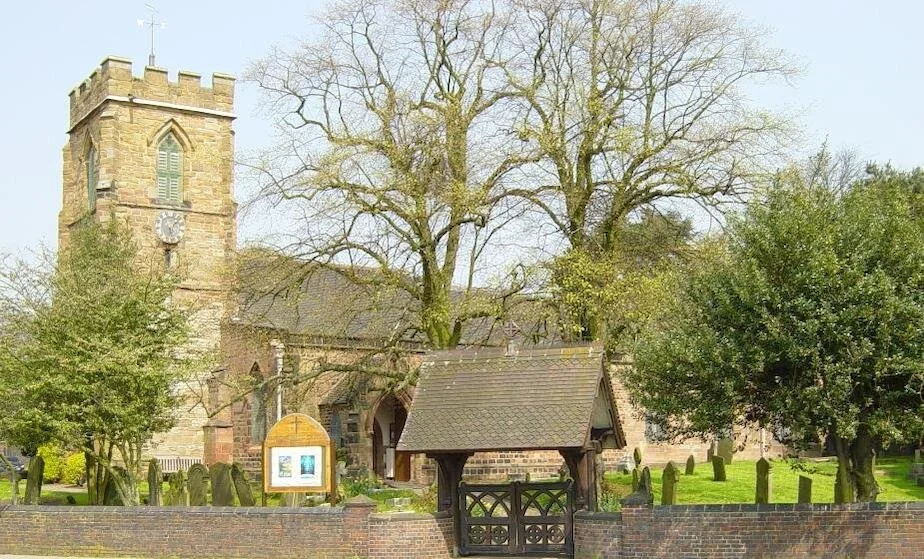“How is the concept of ‘Place’ missing from our personal, prophetic and political lives?”
Longer Read (14-16 mins)
“Listen to me, you who pursue righteousness and who seek the LORD: Look to the rock from which you were cut and to the quarry from which you were hewn; (Isaiah 51v1-2)”
I would submit that ‘place’ is a biblical and theological category; it has personal and human significance and in this age of fluidity and identity crisis it has political importance. Furthermore, the importance of place has been overlooked in an era of globalisation and increased mobility.
By ‘place’ I mean an attachment to a particular area and community, also having resonance in theology and politics. Like any category it can have good and bad aspects; for the Christian it is a penultimate rather than an ultimate category, nevertheless, it has received insufficient attention and that needs correcting.
Oxford Reference defines ‘place’ as…. ‘Either the intrinsic character of a place, or the meaning people give to it, but, more often, a mixture of both’
‘Place’ as a category in the Christian faith
This article starts with a reference to Isaiah 51. In a deeply challenging time for Israel they are asked to consider their history and heritage as a guide and source of strength. Similarly, in our discipleship we need to be aware of our own background, history and formation: both good and bad.
In his book on the Land, Walter Brueggemann states that “The Bible itself is primarily concerned with the issue of being displaced and yearning for a place. Indeed the Bible promises precisely what the modern world denies”. This sums up pithily what I seek to convey. In pondering the failure of modernity’s offer of mobility and endless choice he submits that:
‘It is now clear that a sense of place is a human hunger that the urban promise has not met. And a fresh look at the Bible suggests that a sense of place is a primary category of faith’
An emphasis on place, particularly a geographical commitment at first glance seems at odds with elements of the Christian tradition. Certainly, the Christian faith centres on themes of journey and mobility that appear to be the dialectical opposite of place. God calls people from places to other places e.g. Abraham journeys at great lengths to fulfill his calling. The growth of the church naturally entailed geographical movement and displacement. Christians are called into a unique ‘community’ that binds us to people of other places and nations in a covenantal relationship. Furthermore, our belief is that one day, this earth - temporary and contingent - shall be renewed and we should be looking to the establishment of a ‘new heavens and a new earth’. Thus, It cannot be overemphasized that place is penultimate; to over-stress it is to disavow other important Christian themes and even, in a worst case scenario, to lapse into a pale mimicking of nationalism. However, while it needs to be held in tension with other truths, I believe that ‘place’ has actually been neglected and left unpacked. Within a theological-political framework some attention needs to be given to the particular so the whole story is told and fulfilled. Place needs to be put into its ‘place’ but it needs to be spelt out and affirmed to be appreciated in its fullness.
‘Place’ is paradoxical and dialectical; Christians are part of a universal church and within that polity there is mobility, fluidity and attachment to and love of place. This needs to be set in context.
A good example of this is ‘The Plague and the Parish’, a piece of work undertaken recently to locate the church in the current Covid-19 pandemic. It wonderfully situates the importance of the church amidst the challenge taking place globally, nationally and locally with an emphasis on the particular.
Within the meta-narrative of this pilgrimage, there is attachment to ‘place’. I would suggest that whilst there are exceptions, for working-class communities ‘place’ is highly important. In my experience it is more common for working class communities to strongly identify with an area, its history, institutions and football teams relatively more than for middle class professionals who have moved to areas because of work and ‘social mobility’. Of course, there are many, many examples of middle class professionals moving to areas and developing a commitment to the place and giving something back, yet sociologically there can be a distinction drawn at certain points.
Aldridge Parish Church, home town of the author.
“Place” is linked to personal spirituality
For me, ‘place’ is something I feel strongly about; I cannot help myself when I explain what is important as I refer to place. For example, in this essay I draw on my roots to make a point:
‘Speaking personally, as an evangelical Christian, from a lower-middle class background in South Staffordshire and the edge of the Black Country my disposition is a strong moral compass. I am tribally Labour, independent in thinking and find southern, metropolitan liberal progressivism somewhat alienating. However, my roots and formation account for the reason why I don’t wholly connect with the political and cultural elite worldview and the dominant groupings on the left.’
I always enjoyed walking and praying in my home town of Aldridge past the cricket field and down country lanes on the border with Staffordshire. For many years this was a special place for me. In fact The Celts talked of ‘thin places’, where the presence of the Kingdom of God might be more tangible; perhaps this was one of my own personal ‘thin places’.
“Place” as a political category
Place is political and has a class component, it is bound up strongly with identity. The failure to appreciate this has meant politicians on the left have missed a trick in recent years. MPs represent distinct geographical areas so in some ways place is an understood part of the political process. Some people vote for the MP who best represents their local area rather than having an affinity with a political tribe.
A sense of place as a political category can be the lens through which we understand various political developments. As certain communities have witnessed huge and constant changes people have felt their place has been impacted upon, not always with their consent. Rapid change from residential development, the closure of industries and re-configuration of public services have been some of the factors that have wrought change. As the pressures on place and belonging have intensified, the long-established generational links to political parties, particularly the Labour Party, have been severed. In particular, elements of the Labour Party seemed unable to understand working-class support for leaving the European Union and worst still how people would feel if their vote was undermined by another referendum. A multiplicity of factors have been at play but it is not difficult to draw the dots between a failure to appreciate a sense of place and therefore a misunderstanding of a healthy patriotism.
In the years ahead respect for ‘place’ is going to become an increasingly important political factor, although it interacts with other factors too. I would say that if we can get the theology ‘right’ we can speak into the political discourse.
So why is this important?
In many ways the Prodigal Son, perhaps the epitome of the gospel message, is a story of place. The socially mobile younger brother leaving home for the ‘far country’, blowing everything and coming ‘home’ to a place and a family and a father. It is a summary of the gospel message and the homecoming is a deep, moving act of reconciliation with the Father.
‘Nostalgia’ (often deployed in a dismissive way) can mean to yearn for ‘home’ and away from current pain, in the Greek root. As King David expressed in 1 Chronicles 11v17 when he cried:
‘.... Oh, that someone would get me a drink of water from the well near the gate of Bethlehem!"
Thus, perhaps to the modern mind, a sense of place linked to a perceived preferred past is prone to being classified as nostalgia and therefore being dismissed. However, ‘place’ properly understood is a corrective to the liberal assumption that we all need to move on and out of where we were born and that there is some global, free ‘good life’ waiting out there for us all to discover.
By a re-appraisal of place we can discover an awareness of the importance of Christian commitment to places as mission, understanding areas, their history and pain and how the gospel story applies.
As Mary Glenn reflects, this commitment to place takes time but it is part of our calling to be peacemakers:
‘God calls us to live in places (i.e., cities, rural communities, neighborhoods), to invest our lives, to build relationships, and to share the journey. A theology of place shapes our beliefs and behavior in and with the land and our neighbors. As we develop a theology of place, we become more deeply committed to the community that we have been called to live in and to seek it’s shalom. Shalom is a comprehensive concept that expresses society as God intended it to be, including a sense of wholeness, harmony, and justice. The church is called to be reconcilers and peacemakers in the world, in our specific location and context’
This reference to Jeremiah 29 and the call for God’s people to work for the common good in the alien environment in which they found themselves embodies the prophetic importance of place and its political outworking. It can lead to a more informed, just and contextual politics that is related to a real understanding of local communities. It can lead to a more generous conversation where people’s sense of place is not dismissed at the first instance. Furthermore, it can be more open to broader forms of political activity such as community organising that facilitate a space for churches, faith groups and local institutions to work together for the common good with citizens from diverse social groups and racial backgrounds.
It can lead to a re-evaluation of someone’s commitment to an area as something to applaud and celebrate and not just deride people who never ‘move on’.
The era of globalisation may be in crisis, and much is up in the air, now more than ever with the pandemic. However, in spite of this and also as a consequence of the challenges we face, a re-assessment of place is vital for a Christian sense of mission and politics in this disorientating era.
In referring to James Rebanks book ‘The Shepherds Life’ about shepherding in the Lake District Stanley Hauerwas points out that the contentment gained in a traditional vocation in a stable location defies the aspirations of liberal modernity.
‘Toward the end of the memoir in which Rebanks describes the hard life and work of being a shepherd, he is lying on his back watching the sheep he has let loose in the fells and he thinks, “This is my life. I want no other.” An extraordinary claim I suspect few in our social orders can make. So let me give you the advice I think you need if you hope to one day be able to say, “This is my life. I want no other.’
Contentment, perhaps elusive to many in this crazy world may come in many forms but we should not lose sight of the life that can be rooted in customs and places that secular modernity overlooks or has sought to crush. The Christian faith has the resources to re-visit the riches of these dispositions and attachments and place them in the context of an expansive generous story that makes sense of them and does not belittle them.


